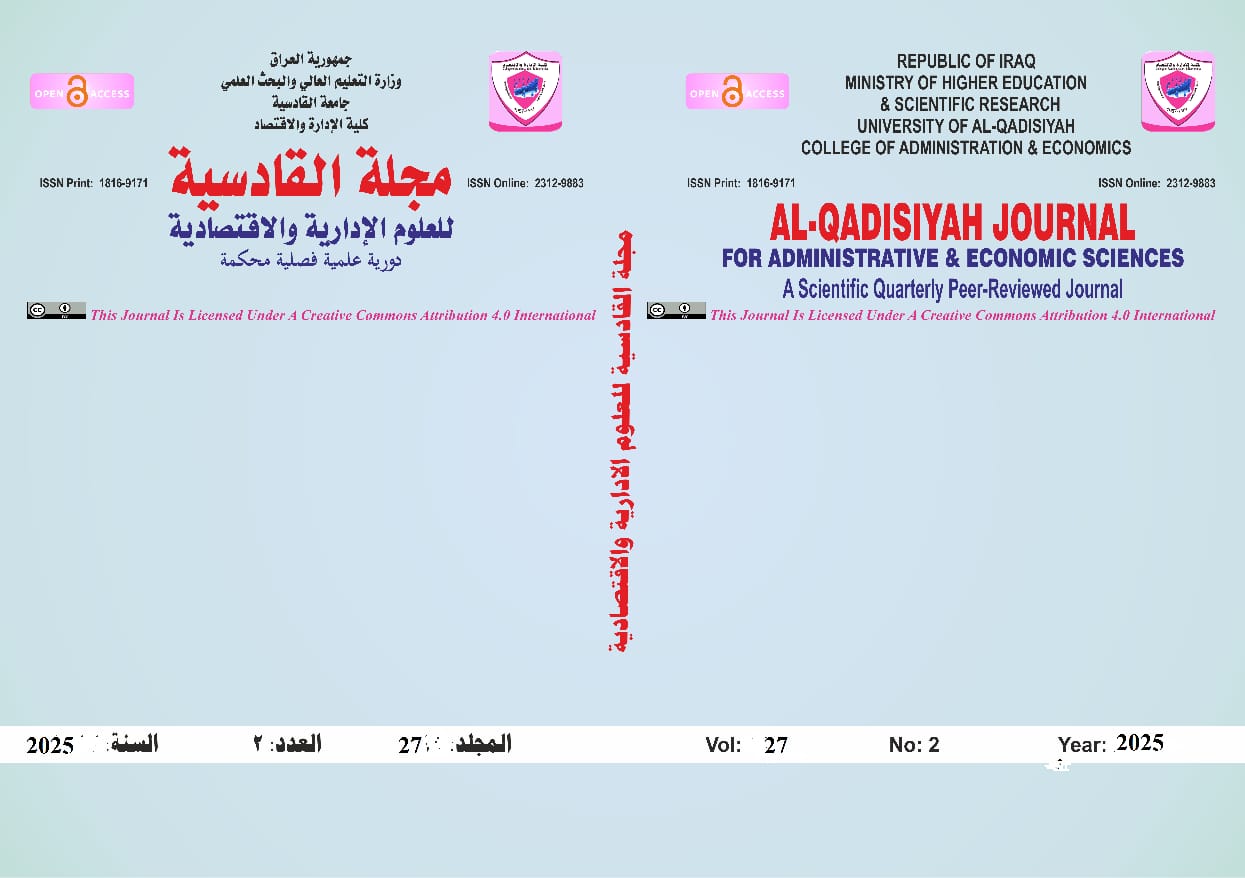Abstract
Abstract : The purpose of the study is to determine how Iraq's development sustainability will be affected by the
implementation of green taxes. To accomplish the goals of the study and confirm the accuracy of its hypotheses, the
descriptive analytical technique was combined with an inductive-deductive approach. The research's applied
component was based on the perspectives of a sample of General Tax Authority workers, a questionnaire was
prepared that included a set of questions related to the research variables and was distributed to the research sample
of employees working in the General Tax Authority, numbering 30 individuals. Using statistical analysis according to
the statistical program (SPSS), the results showed a strong direct relationship between the independent variable
(green taxes) and the dependent variable (sustainable development), in addition to the existence of a significant effect
of the independent variable green taxes on the dependent variable sustainable development, The study came to a
number of results, the most important of which was that imposing green taxes on those who cause environmental
pollutants contributes to giving a monetary value to the exploitation and sustainability of ecological resources, which
are often exploited for free due to polluters dumping their polluted waste in various elements of nature without
compensation. The research also confirmed that using green taxes as an effective economic tool to reduce
environmental pollution and direct the behaviour of Consumers towards a green economic environmental culture and
investing its revenues in development projects in the fields of environmentally friendly renewable energies can bring
about changes in environmental sustainability and help develop the economies of countries by directing the resources
of these taxes to protect natural resources, which is positively reflected on the environment and helps in sustaining its
development.
implementation of green taxes. To accomplish the goals of the study and confirm the accuracy of its hypotheses, the
descriptive analytical technique was combined with an inductive-deductive approach. The research's applied
component was based on the perspectives of a sample of General Tax Authority workers, a questionnaire was
prepared that included a set of questions related to the research variables and was distributed to the research sample
of employees working in the General Tax Authority, numbering 30 individuals. Using statistical analysis according to
the statistical program (SPSS), the results showed a strong direct relationship between the independent variable
(green taxes) and the dependent variable (sustainable development), in addition to the existence of a significant effect
of the independent variable green taxes on the dependent variable sustainable development, The study came to a
number of results, the most important of which was that imposing green taxes on those who cause environmental
pollutants contributes to giving a monetary value to the exploitation and sustainability of ecological resources, which
are often exploited for free due to polluters dumping their polluted waste in various elements of nature without
compensation. The research also confirmed that using green taxes as an effective economic tool to reduce
environmental pollution and direct the behaviour of Consumers towards a green economic environmental culture and
investing its revenues in development projects in the fields of environmentally friendly renewable energies can bring
about changes in environmental sustainability and help develop the economies of countries by directing the resources
of these taxes to protect natural resources, which is positively reflected on the environment and helps in sustaining its
development.
Keywords
environmental pollutants
Iraqi General Tax Authority.
Keywords: Green taxes
Sustainable Development
